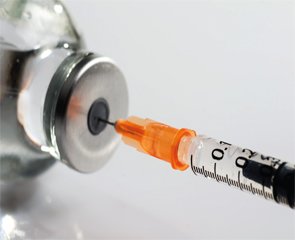
Luiscar74/shutterstock.com
CHICAGO—In October of last year, a 52-year-old woman came to see Kevin Winthrop, MD, MPH, associate professor in infectious diseases, public health and preventive medicine at the Oregon Health & Sciences University. She had rheumatoid arthritis and was taking methotrexate and prednisone. She had had little change in her RA disease severity and was considering starting on a biologic therapy.
She had received a Bacillus Calmette-Guérin (BCG) vaccine—a vaccine primarily used against tuberculosis—as a child in Switzerland, although she now lived in the U.S. She had had shingles six months earlier. Dr. Winthrop brought up the idea of vaccination. The patient rolled out a litany of objections—that she had an egg allergy, that her husband gets the flu from his shots, that vaccines have mercury in them that causes Alzheimer’s disease.
Dr. Winthrop explained that all of those concerns were unfounded, and she became willing to receive one vaccine that day. So which one to give?
There is no clear right answer—flu, Pneumovax 23 (pneumococcal vaccine polyvalent) for Pneumococcus or even a shingles vaccine are options—but Dr. Winthrop suggested that the intramuscular flu shot might be wise, given the time of year.
When to Vaccinate
The issue of vaccinating patients with rheumatic diseases often leaves physicians in a gray zone: Patients need to be protected against diseases to which they can be more susceptible, but the vaccine itself can carry more risk in these patients. So doctors have to weigh questions of timing, benefit and risk, Dr. Winthrop said at the ACR’s State-of-the-Art Clinical Symposium. He touched on data that can help give guidance and on the future direction of vaccinations in these patients.

Dr. Winthrop
“We have very little data on how your DMARDs affect the effectiveness of vaccines,” Dr. Winthrop said. “But we do have data on immunogenicity, and we presume that less immunogenicity equals less in protection.”
There is evidence that methotrexate “severely diminishes” the response to Pneumovax and that rituximab can essentially wipe out the response to the flu vaccine and Pneumovax, he said. So those vaccines should not be given near the time rituximab is given.
There are also some data showing that abatacept can lower the responses of these vaccines.
But the evidence suggests that TNF-blockers and tocilizumab “don’t really change the responses that much,” he said. The JAK-inhibitor tofacitinib can decrease the response to Pneumovax about as much as methotrexate does, he said.1


